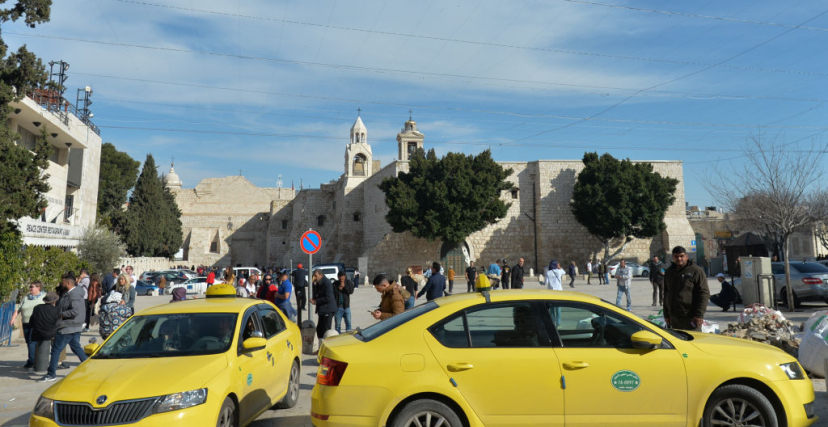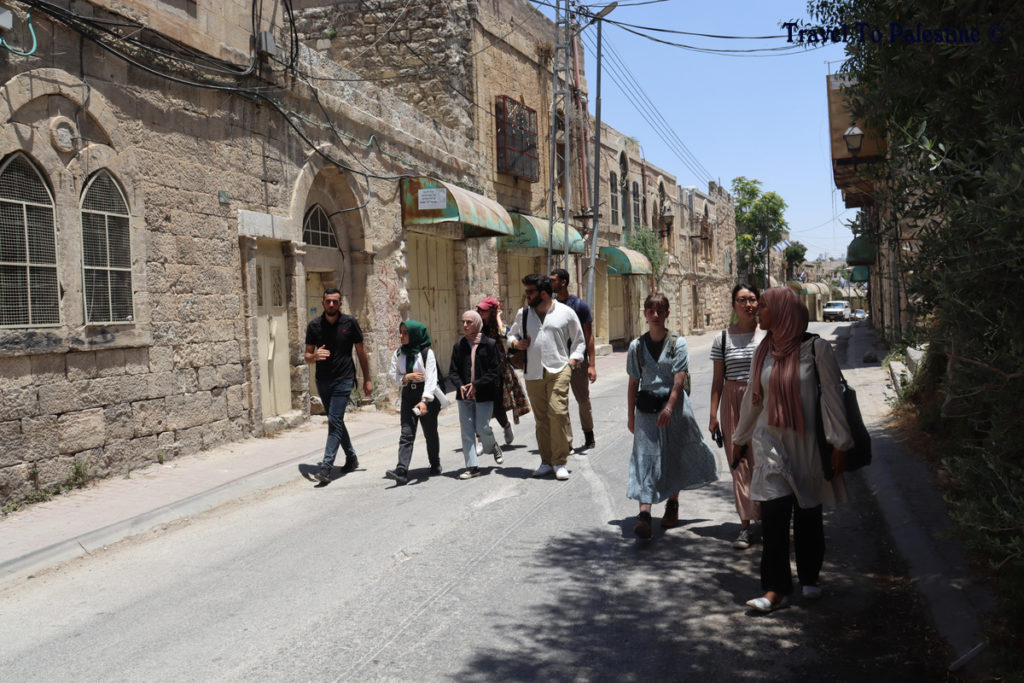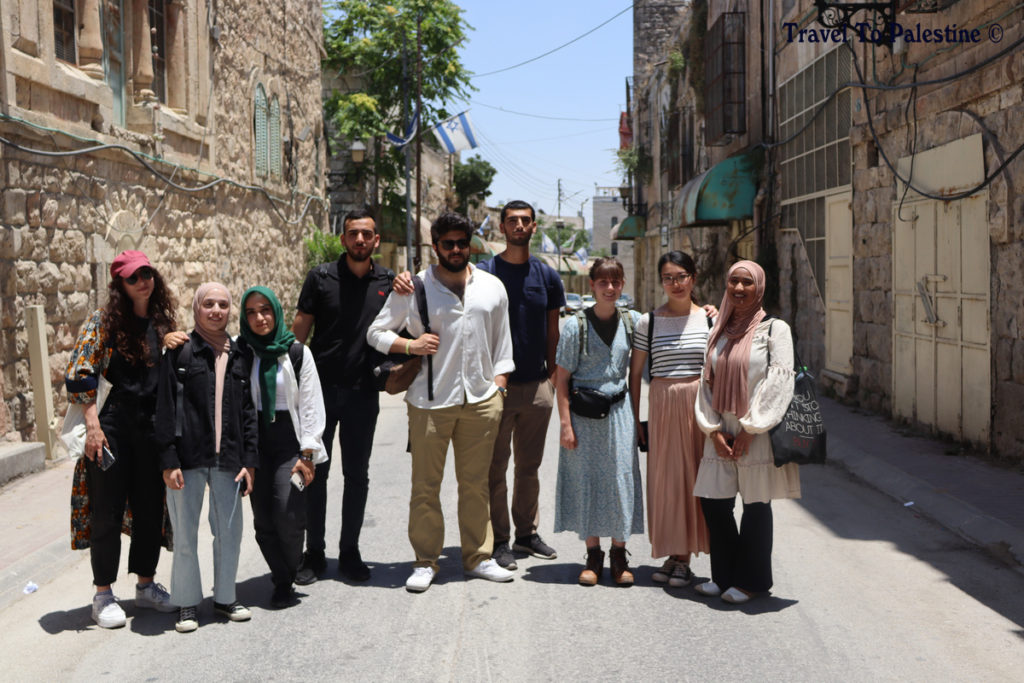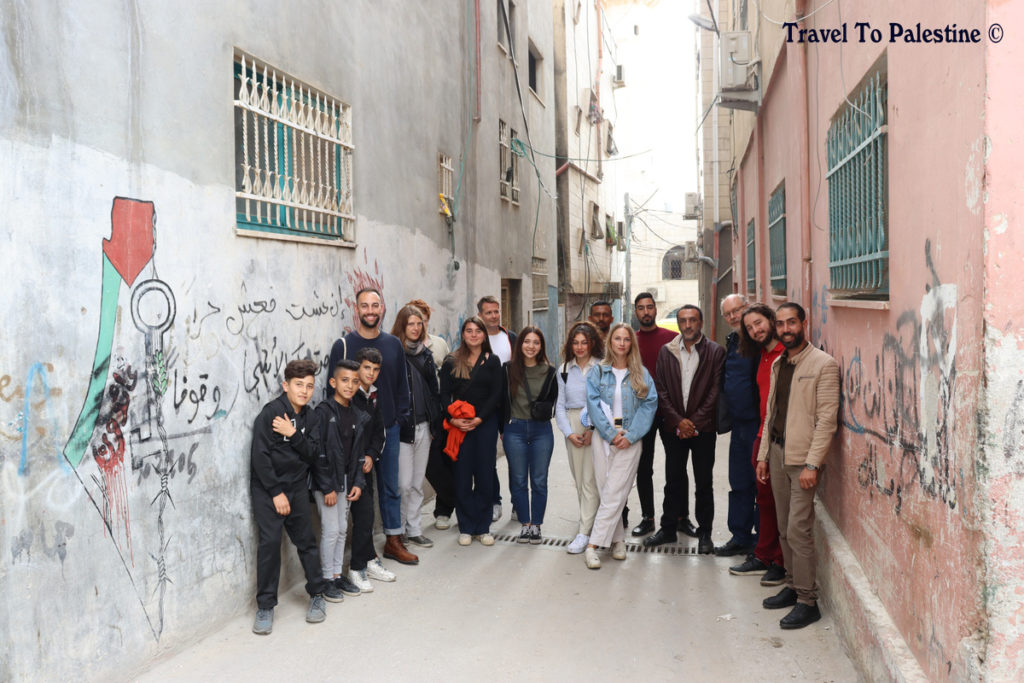Travelling Solo in Palestine – Hopeful visitors to Palestine often find the prospect of solo travel to be daunting. Deciphering visa requirements, arranging accommodations, mapping transportation routes, and passing through Israel’s infamous security measures may seem insurmountable, but rest assured they are very manageable. Visas to Palestine are available upon arrival, a variety of efficient transportation services can be found throughout Palestine, and Israel’s rigorous security is more often than not a breeze for internationals.
Table of Contents
Navigating Palestine
Whether you’re an experienced traveler or just starting, navigating Palestine is less nerve-wracking than one might think. Geographically, Palestine is a small country with very friendly and accommodating people. Visitors will never face the sort of daunting train trips or long bus rides one might find in Europe or the U.S.; those who find themselves lost or confused need only ask for assistance in finding their way.

Private vs Shared Taxis
Palestine is mostly serviced by a network of local and commercial taxi services. These bright yellow taxis can often be seen darting around the narrow streets of Hebron and flying down the highways towards Jerusalem. Generally speaking, taxi services are divided between private and shared. The smaller taxis most commonly seen in cities of the West Bank may be available for both private and shared trips, with the private option, of course, being more expensive.
This style of taxi is best suited for local trips within a city and should only cost a few shekels. Visitors simply need to hail a taxi and give the driver their final destination. While most drivers speak at least a little English, they’re well-versed in navigation should you encounter any language barriers; they are more than capable of comprehending your final destination from your mobile maps. Additionally, taxi drivers are usually excited to speak with foreign visitors, even if communication is limited by language comprehension.
While these smaller taxis service the urban routes within major cities, they are not typically the best option for longer trips and will certainly be quite expensive should they be used for this purpose. Foreigners should also be aware that private taxi drivers will be all too happy to accommodate your endeavor at this inflated price. Visitors looking to travel between cities should therefore employ the services of a shared taxi, which exists expressly for this purpose and is priced accordingly.
Shared Taxis
Compared to their private counterparts, shared taxis are larger and can be found all around Palestine with almost as much frequency; however, they are especially prominent at high-traffic crossing points such as Jerusalem and Jericho. Shared taxis are about the same size as the typical mini-van and can be found outside high-traffic areas, popular tourist attractions, and bus stations.
Drivers of these taxis will actively advertise their services by shouting the names of their respective destinations, so it’s a good idea to be familiar with the Arabic designations for major cities such as ‘Al-Khaleel’ for Hebron and ‘Al-Quds’ for Jerusalem. The fee for these taxis is quite economical considering the distance they cover; however, they typically do not depart until all the seats have passengers.


Travel Between Cities Throughout Palestine
In addition to the network of taxis, transport by bus is also commonly utilized to travel between cities throughout Palestine. While a bus will not always cover the entire distance to the next city, they are competitively priced, making it an economical alternative for the frugal traveler. Depending on your departure point, buses may be listed in Arabic, Hebrew, or English, especially when traveling from Jerusalem or other popular tourist centers.
There is no direct bus route from Jerusalem to Hebron; the nearest bus destination is Bethlehem. Between Bethlehem and Hebron, a shared taxi will be the next mode of transport. The same also applies to those using the King Hussein/Allenby Bridge Crossing from Jordan; once past Israeli border control, a bus to Jericho will be available, and from Jericho, a mass of shared taxis will be in high supply.
But What About Military Presence?
Israeli checkpoints built and manned by Israel can be found all over Palestine, often outside settlements, Palestinian villages, and roads with high traffic. For Palestinians, these checkpoints impede any sort of development and autonomy as they heavily restrict their movements.
For internationals, on the other hand, checkpoints are relatively easy to navigate, often being waived through without issue. At most, internationals may be stopped and asked to show their passports and the reason for their visit, especially when traveling to Hebron since tourists typically do not venture here. It’s important during these interactions to remain calm and honest, though do not volunteer information to avoid complicating this process.
Culture of Congeniality
While passing through Israeli security measures is in itself a source of anxiety for many, traveling alone through a foreign country surrounded by an unfamiliar language can be equally daunting. During your time in Palestine, though, you are guaranteed to find friendly, helpful locals wherever you go. Though it’s never immediate, you will surely acclimate and become familiar with your specific location, eventually establishing a routine as you sift through restaurants, markets, and cafes. Don’t hesitate to ask the locals around you as well, as Palestinians know all the best spots and are happy to assist foreigners with their suggestions.
Many Palestinians also know basic English and simultaneously appreciate foreigners who at least attempt to communicate in Arabic. It’s actually quite common for Palestinians to hail internationals in the street to welcome them, and travelers will more often than not find locals to be very friendly and talkative; you will never find yourself at a loss for conversation or assistance. Potential visitors should therefore rest assured that whether traveling in a group or by themselves, navigating through Palestine is much easier than they imagine.

Conclusion
Navigating Palestine as a traveler is a manageable and enriching experience, with ample support from friendly locals and accessible transportation options. Whether you’re taking a private or shared taxi, or navigating the bus routes, getting around is straightforward and often economical. While the presence of Israeli checkpoints may seem intimidating, internationals usually pass through without significant issues. Ultimately, the warmth and hospitality of Palestinians, coupled with the country’s small and easily navigable geography, ensure that solo travel in Palestine is far less daunting than it initially appears. With this guide in hand, you are well-prepared to explore and enjoy all that Palestine has to offer.
Any questions
Should you have any questions, please do not hesitate to contact us at Info@ecpalestine.org
Whatsapp:+972599479880

